Quick Summary:
Mercedes S-Class and EQS sales have seen a dip. This is mainly due to economic shifts, changing consumer preferences towards electric vehicles (EVs), and increased competition. Understanding these factors helps owners and enthusiasts see the bigger picture of the luxury automotive market.
Decoding the Mercedes S-Class and EQS Sales Dip: What Owners Need to Know
Hey everyone, Charlie Joyce here! Ever noticed how car models sometimes seem to pause before a big leap forward? That’s kind of what’s happening with the Mercedes-Benz S-Class and its electric sibling, the EQS. You might have heard whispers or seen reports about their sales numbers softening a bit. Don’t worry, it doesn’t mean there’s anything wrong with these incredible machines. Often, it’s just the market taking a breath, evolving, and shifting gears.
Think of it like this: a classic, beloved book might have a brief dip in sales when a hot new series comes out. It doesn’t mean the book isn’t still fantastic or that people don’t love it. It just means we’re in a period where other stories are capturing attention. Mercedes-Benz is always innovating, and sometimes, shifts in what buyers are looking for or the overall economic climate can affect sales figures temporarily.
In this guide, we’ll break down why this might be happening in simple terms. We’ll look at what’s influencing these sales trends for both the iconic S-Class sedan and the cutting-edge EQS. Understanding these shifts can help you appreciate the future direction of these flagship vehicles, whether you own one, are planning to buy, or are simply a fan of Mercedes-Benz engineering. Let’s dive in!
Why Are Mercedes S-Class and EQS Sales Declining?
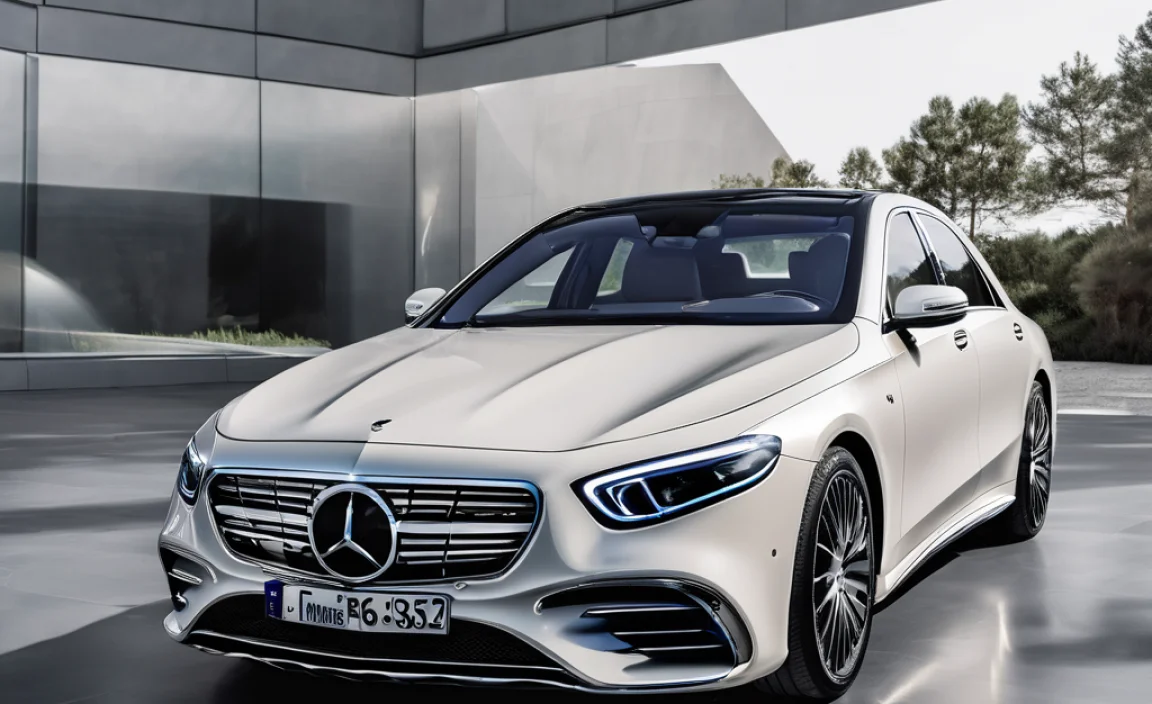
It’s a question many car aficionados and owners are pondering. The S-Class has long been the benchmark for luxury sedans, and the EQS represents Mercedes-Benz’s electric future. So, when their sales figures aren’t hitting previous peaks, it’s natural to wonder why. The reasons are usually a mix of broader economic trends, evolving consumer tastes, and the competitive landscape within the automotive industry.
Let’s unpack these factors so you can get a clear picture. It’s not about a flaw in the cars themselves, but rather the dynamic nature of the global car market.
Understanding the Market Dynamics
The automotive industry is constantly in motion. Consumer preferences shift, new technologies emerge, and economic conditions fluctuate. For the S-Class and EQS, several key areas are influencing their current sales trajectory.
Economic Uncertainty and Luxury Spending: When economies face headwinds, luxury goods are often among the first to see a slowdown in demand. High-interest rates, inflation, and concerns about the future can make potential buyers more cautious about making significant purchases like a high-end luxury sedan.
The Electric Vehicle (EV) Revolution: While the EQS is a star in the EV space, the entire EV market is still maturing. Early adopters have bought in, but now the broader market is considering the switch. Factors like charging infrastructure, range anxiety (though much improved), and the initial cost of EVs can still deter some buyers, even from premium electric options.
Shifting Body Styles: There’s a noticeable trend in the automotive market towards SUVs and crossovers. While sedans will always have their place, many consumers, even in the luxury segment, are opting for the versatility and higher driving position offered by SUVs.
Increased Competition: The luxury segment is more competitive than ever. Traditional rivals like BMW and Audi are bringing compelling offerings, while newer players and EV-focused companies are also making waves. This means Mercedes-Benz has a lot of strong competition vying for buyers’ attention.
Production and Supply Chain Adjustments: Sometimes, sales figures can be influenced by a manufacturer’s production strategies or lingering effects from global supply chain issues. If a company is prioritizing certain models or dealing with component shortages, it can impact the availability of others.
Key Factors Affecting S-Class and EQS Sales
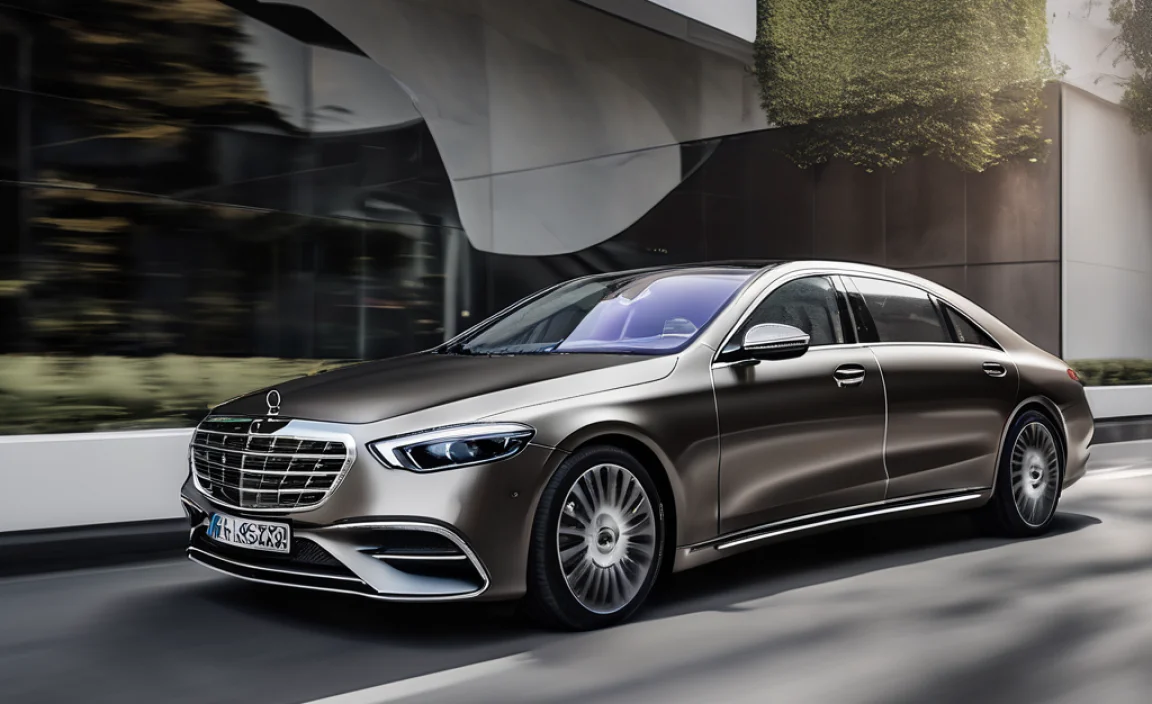
Let’s zoom in on the specific reasons you might be seeing lower sales numbers reported for these prestigious vehicles. It’s a combination of the broader trends we just touched upon, but with a particular focus on how they impact these segments.
1. Economic Headwinds and Consumer Confidence
Luxury vehicles, by definition, are discretionary purchases. When people feel less secure about their finances, they tend to hold onto their money or postpone big-ticket items.
Inflation: Rising prices for everyday goods can eat into disposable income, making a new S-Class or EQS seem less attainable or a lower priority.
Interest Rates: Higher interest rates make car loans more expensive. For a vehicle in the S-Class or EQS price bracket, this can significantly increase the monthly payment, deterring buyers.
Global Economy: International sales are crucial for luxury brands. Economic slowdowns or instability in key markets can have a ripple effect on sales figures worldwide.
2. The Evolving Electric Vehicle Landscape
The EQS is a pioneer, but the electric car market is growing incredibly fast.
Maturation of EV Technology: As more EVs enter the market from various manufacturers, consumers have more choices. This increased choice among electric luxury vehicles can spread sales thinner.
Infrastructure Development: Despite improvements, the availability and reliability of public charging stations can still be a concern for some potential EV buyers, especially for long-distance travel.
Price Sensitivity: While EV technology is advancing, the sticker price for many luxury EVs, including the EQS, remains high. Buyers may be waiting for more price parity with comparable gasoline models or for incentives to become more attractive.
Preference for Electric SUVs: As mentioned, the market is leaning towards SUVs. While Mercedes offers the EQS SUV, the sedan segment may be feeling the broader shift away from sedans in general.
3. Shifting Consumer Preferences and Body Styles
The automotive world has seen a dramatic shift towards SUVs and crossovers in recent years.
Versatility of SUVs: SUVs offer a higher driving position, more cargo space, and often the perception of greater safety, appealing to a wide audience, including luxury buyers.
Sedan Market Share: This trend has led to a general decline in the market share for traditional sedans, affecting all manufacturers, not just Mercedes-Benz. Even flagship sedans like the S-Class feel this pressure.
Brand Loyalty vs. Trend: While the S-Class has immense brand loyalty, a large segment of the car-buying public is influenced by current trends, and that trend is currently favoring SUVs.
4. Intense Competition in the Luxury Segment
Mercedes-Benz has always faced formidable competition, but the landscape is even more crowded now.
Established Rivals: Brands like BMW, Audi, and Porsche continue to innovate with their own flagship sedans and electric offerings.
New Entrants: The rise of Tesla has fundamentally altered the luxury EV market. Additionally, other newer or EV-focused companies are entering the premium space, offering compelling alternatives.
Technological Arms Race: Manufacturers are constantly rolling out new tech features. Staying ahead of the curve is a huge challenge, and competitors are introducing advanced infotainment, driver-assistance systems, and performance enhancements that can capture buyer interest.
S-Class vs. EQS: A Tale of Two Segments Facing Similar Pressures
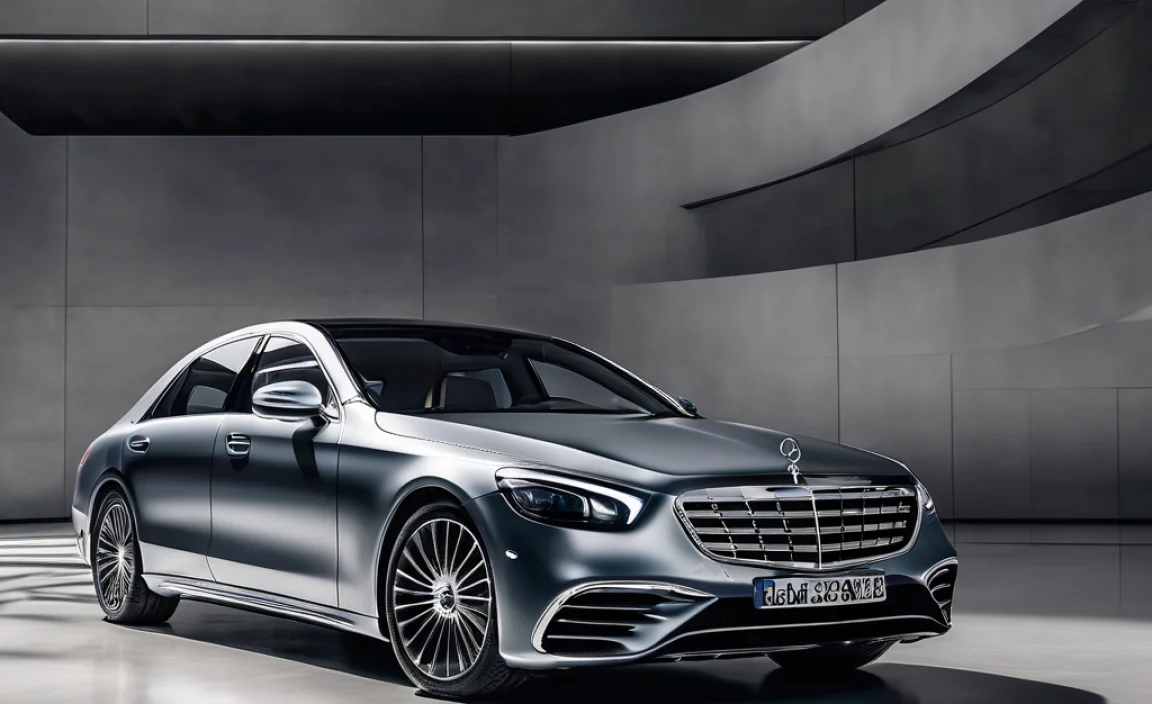
It’s important to distinguish between the S-Class and the EQS, even though they share some overarching market challenges.
The S-Class, a long-standing icon, faces pressure from its traditional luxury competitors and the general market shift away from sedans. Its sales may be impacted by buyers opting for the GLS SUV for luxury and space, or even the electric EQS.
The EQS, on the other hand, is a leader in the emerging luxury EV sedan space. Its sales are influenced by the broader EV market dynamics – charging infrastructure, the pace of EV adoption, and the growing number of electric luxury competitors, including its own SUV counterpart and the potent AMG versions.
Sales Figures: A Snapshot
To give you a clearer picture, let’s look at some general trends without getting bogged down in precise, constantly changing numbers.
| Luxury Sedan Segment | General Trend (Recent Past) | Influencing Factors |
| :——————- | :————————-: | :——————– |
| Mercedes-Benz S-Class | Moderate Decline / Stable | Economic concerns, shift to luxury SUVs, increased competition from other luxury sedans. |
| Mercedes-Benz EQS | Strong Initial Interest, Facing Increased Competition | Maturing EV market, range/charging concerns, electric luxury SUV preference, more EV competitors. |
Note: Specific sales figures can fluctuate monthly and quarterly. These are general observations of broader market movements.
Strategies for Mercedes-Benz and What it Means for Owners
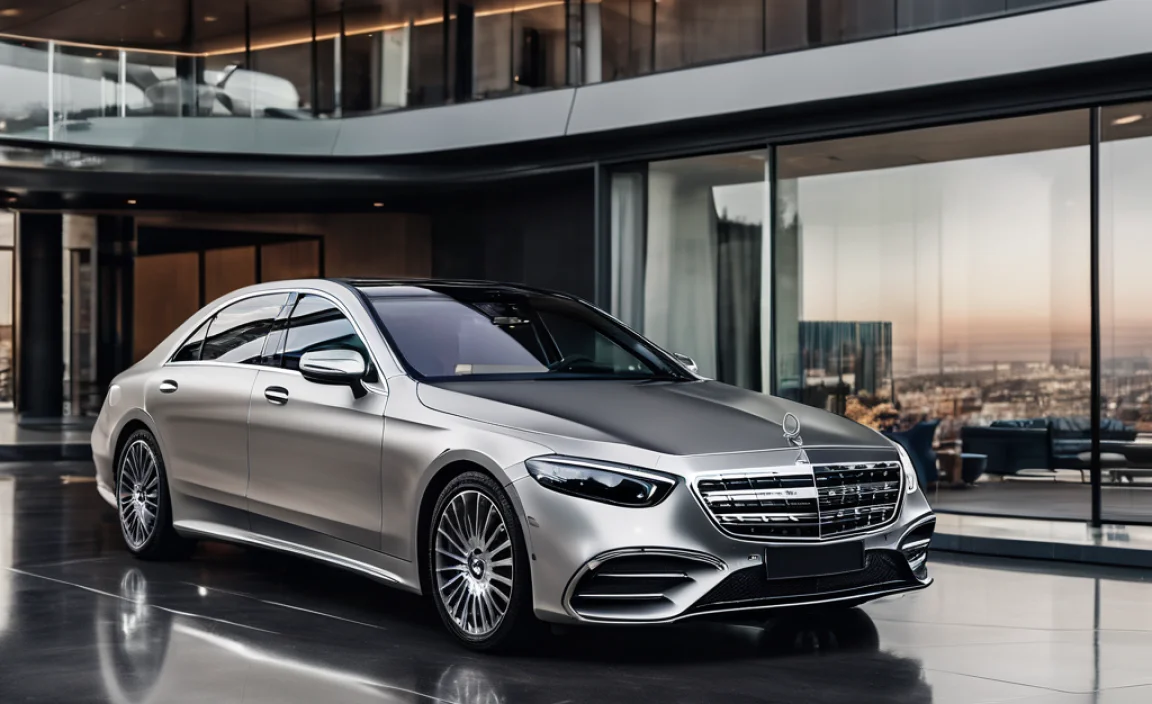
When sales figures dip, manufacturers don’t just sit back. They adapt. Mercedes-Benz is known for its forward-thinking strategies.
What Mercedes-Benz is Doing
Product Portfolio Evolution: This includes refining existing models, introducing new variants (like performance-focused AMGs or more rugged off-road options for other models), and ensuring their EV lineup is competitive and appealing. They are actively investing in battery technology and charging solutions.
Focus on Core Strengths: Emphasizing the unparalleled luxury, comfort, engineering, and safety that the S-Class and EQS are known for. This includes highlighting their advanced driver-assistance systems and innovative interior technologies.
Market Adjustments: Potentially adjusting production volumes, offering attractive financing or lease deals, and focusing on markets where demand remains strong.
Enhancing the EV Experience: Working to improve charging networks through partnerships and developing more user-friendly charging solutions.
What This Means for S-Class and EQS Owners
Continued Innovation: You can expect Mercedes-Benz to continue pushing the boundaries of automotive technology and luxury in both its gasoline and electric vehicles.
Potential Value Considerations: For those considering a purchase, a temporary dip in sales might mean more opportunities for attractive pricing or lease specials.
Focus on Quality: The brand’s commitment to quality and reliability should remain a top priority. These vehicles are built to last and offer incredible driving experiences.
The Future is Electric (and Evolving): The push towards electrification is undeniable. Owning an EQS now positions you at the forefront of this movement, and future iterations will likely address current market concerns even more effectively.
Maintaining Your S-Class or EQS: Essential Owner Tips
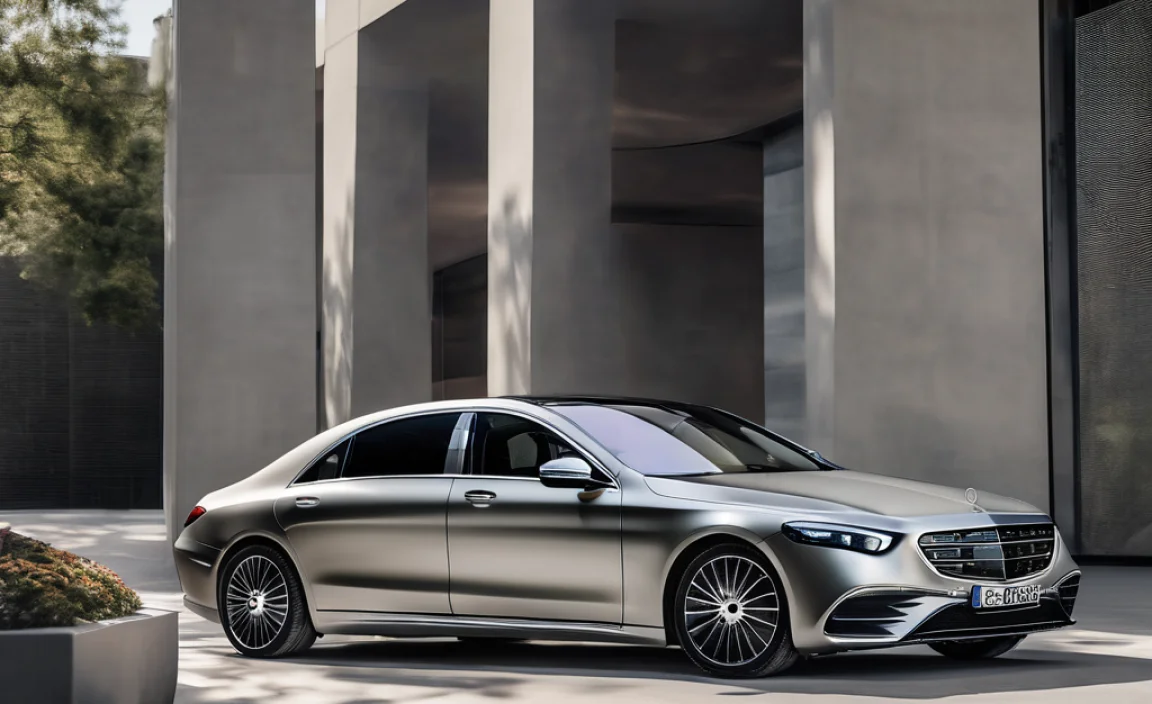
Whether you own an S-Class or an EQS, proper maintenance is key to ensuring its longevity and performance, regardless of market trends.
For Your Mercedes-Benz S-Class (Gasoline Models):
Regular maintenance, as outlined in your owner’s manual, is crucial. Key areas include:
Oil Changes: Essential for engine health. Follow the recommended intervals.
Fluid Checks: Coolant, brake fluid, and power steering fluid levels should be checked regularly.
Brake System: Inspect brake pads and rotors for wear.
Tires: Rotate and balance tires for even wear and optimal handling. Check tire pressure regularly.
Filters: Replace air and cabin filters according to the service schedule.
Battery Health: Ensure your 12V battery is in good condition, as a weak battery can cause various electrical gremlins.
For Your Mercedes-Benz EQS (Electric Models):
EVs have fewer moving parts than gasoline cars, meaning less traditional maintenance. However, some key points remain:
Brakes: While regenerative braking reduces wear, your physical brake pads and rotors still require periodic inspection.
Tires: EVs are often heavier and can have high torque, leading to quicker tire wear. Regular rotation and pressure checks are vital. Consider tires designed for EVs.
Cabin Air Filter: Similar to gasoline cars, this needs replacement for air quality.
Coolant: The battery and powertrain cooling systems use coolant, which needs to be maintained.
12V Battery: Most EVs still have a smaller 12V battery to run onboard electronics; this requires maintenance.
Software Updates: Mercedes-Benz regularly offers over-the-air (OTA) software updates that can improve performance, add features, and enhance efficiency. Ensure your vehicle is connected and updated.
Always refer to your specific owner’s manual for the most accurate and detailed maintenance schedule for your model year. For DIY tasks beyond basic checks, ensure you have the right tools and knowledge. If you’re unsure, consulting a qualified Mercedes-Benz technician is always the safest bet.
Frequently Asked Questions (FAQs)
Q1: Is my S-Class or EQS still a good investment?
A: Absolutely. Mercedes-Benz vehicles, especially the S-Class and EQS, are engineered for quality, luxury, and advanced technology. While sales figures can fluctuate, their inherent value as premium automobiles remains high. Depreciation is a factor for all cars, but these models hold their status well.
Q2: Will Mercedes-Benz stop making the S-Class or EQS?
A: It is highly unlikely. The S-Class is Mercedes-Benz’s flagship sedan and a symbol of the brand. The EQS represents their commitment to electric luxury. While Mercedes-Benz constantly refines its model lineup, these vehicles are core to their identity and future strategy.
Q3: Should I wait to buy a new S-Class or EQS because of sales declines?
A: A sales decline doesn’t necessarily mean a price drop, but it could present opportunities for more attractive financing, lease deals, or incentives from dealers trying to move inventory. Your decision should be based on your personal needs and financial situation, not just market fluctuations.
Q4: Are electric cars like the EQS having trouble competing?
A: The EV market is dynamic. While the EQS is a luxurious and advanced electric vehicle, it faces growing competition. Broader challenges like charging infrastructure and consumer education play a role. However, EVs are the future, and Mercedes-Benz is strongly invested in this segment.
Q5: What does “sales decline” really mean for the average owner?
A: For current owners, it typically means very little in the short term. Your vehicle’s performance and features are unaffected. It might signal that Mercedes-Benz will continue to innovate and potentially offer more incentives on future models or to attract new buyers. Service and parts availability should remain excellent.
Q6: Are SUVs taking over the luxury market from sedans like the S-Class?
A: There’s a strong trend towards luxury SUVs, which has impacted sedan sales across the board. However, sedans like the S-Class still command a significant market share due to their specific appeal regarding driving dynamics, comfort, and classic luxury. Mercedes-Benz offers both excellent sedans and SUVs to cater to diverse preferences.
Conclusion: Navigating the Road Ahead
The automotive market is always evolving, and understanding the dynamics behind sales trends can be fascinating. The slight dip in sales for the Mercedes-Benz S-Class and EQS isn’t a sign of trouble, but rather a reflection of broader economic conditions, the exciting but complex transition to electric mobility, and the ever-increasing competition.
For owners, this means you’re driving vehicles from a brand that is keenly aware of market shifts and is actively innovating. Mercedes-Benz is dedicated to maintaining its position at the pinnacle of luxury and technology, whether that’s through the refined elegance of the S-Class or the pioneering spirit of the EQS.
Keep enjoying the exceptional driving experience these cars offer. By staying informed about market trends and continuing with diligent maintenance—whether it’s for the smooth V8 of an S-Class or the silent power of an EQS—your Mercedes-Benz will remain a reliable and luxurious companion for many years to come. The journey of automotive innovation is continuous, and Mercedes-Benz is firmly in the driver’s seat, charting a course for the future.